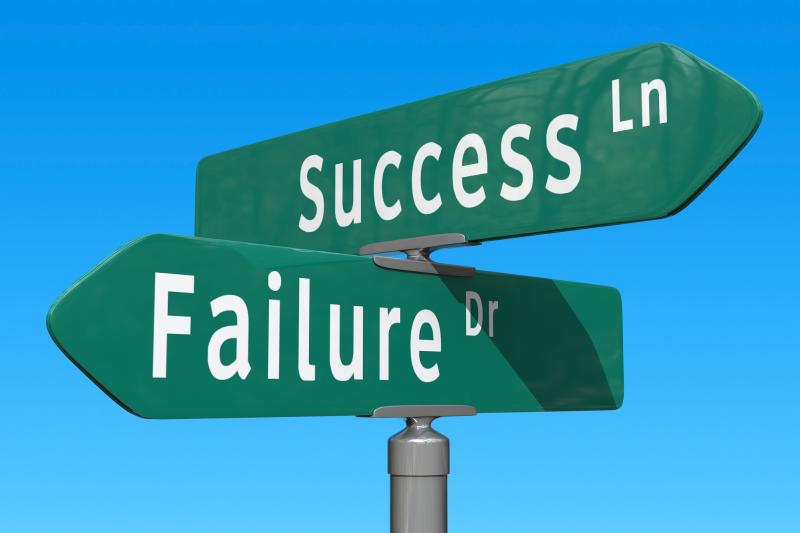We have all seen them in action: friends and colleagues whose cheery upbeat attitude towards life and the moment at-hand lasts as the sun shines and things go their way.
As soon as clouds mask the sun or fate raises a speed bump, the attitude darkens. All that positive energy curdles into a sour mixture of excuses, finger pointing, and the momentum-killing cry, “WOE IN ME.”
If we are honest, we will admit that not only have we seen such displays but we have acted them out ourselves in various degrees of intensity.
But what if this positive energy and can do attitude that thrive under the sun could stand up also during the storm. What a difference this could make, says John Maxwell, in his book “The Difference Maker,” zeroes in on the power of attitude.
“It is an absolute fact,” he says during an interview, he stated that “The difference between successful and unsuccessful people is that successful people have a much better attitude during great times of crisis“. Everybody has a good attitude when things are going well, but if ever I needed a great attitude it`s in a bad situation”.
Maxwell being the son of a farmer pastor himself, has written 30 books on topics of Adversity, Leadership, The Development of Potential and Attitude.
In all of them including the sellers “Twenty-One irrefutable Laws of Leadership’’ and “Developing the Leader Within” he weaves the underlying message that people can indeed have the ability to change, but don’t know how to, “he say. “It is not from a lack of desire. My books are kind of a practical: here is how to do it.”
His how to no attitude starts with a simple observation: “people always project on the outside what they feel on the inside,” he went further to write that “some people try to mask their attitude and they can fool others for a while. But that cover up does not last long. Attitudes always wiggles its way out.”
While “The Difference Maker” examines what a positive attitude can do to help overcome challenges and to improve work and family relationships, one of it most telling points is a disclaimer about what it cannot do.
“A lot of people assume that attitude can make up for a lack of talent or personal growth,” says Maxwell. “They think, “Believe it and you can achieve it.” But there are a lot of things I could believe in sincerely that I can never achieve.”
His favorite example is the highly motivated but low talent hopefuls who appear on the television show “American Idol” believing they will win. They end up dismayed when they are immediately cut from the show because they cannot carry a tune.
“I have never been impressed with those who motivate themselves by hype,” he would say. “They believe you just “fake it till you make it.” If you buy into that, you will be setting yourself up for a fall. “If the ability is not in you, it shows up pretty quick.”
Rather, he says, a positive attitude makes the difference when one realistically charts a course within areas of personal competence. He has seen that firsthand in the hiring process.
He says that if you have two job candidates with the same qualification and experience, it is a tossup who to hire. They both have same skills to do the job. The only difference between the two is that Micheal has a great attitude and Henry does not. Who are you going to hire? You are going to hire Micheal.”
But is the hapless Henry doomed to go through life with a bad attitude? That says Maxwell, is pretty much up to Henry.
‘Most people think attitude is a result of what other people have done to them” he says, I was born in the wrong family,” or “you don’t understand what I have to work with everyday. “THOSE PEOPLE SAY “Some else determines my attitude.” If they really believe that, they have no motivation to change.”
But attitude is a personal choice, he says. “You must take responsibility for it. If you eliminate choice if you don’t think you have a choice about your attitude then you resign and become a victim. And nothing is worse than becoming a victim. At that moment, “failure camps on your doorstep the rest of your life.”
Even so, it’s often the whiff of failure that motivates us to change.
“I don’t think a person ever chooses to have a great attitude until he or she understands the consequences of having a bad one,’ says Maxwell. “People only change when they have to. When I get to a place where I realize my attitude is hurting me, I learn it’s a choice. Most people don’t change because they do not think it is a choice.
Maxwell attributes his own positive attitude to the examples set by his parents when he was growing up in Indiana.
“I grew up in a home that was very positive, he says, “My father had a great attitude. And my mum did. They were positive people and I saw what a wonderful environment that created for a kid like me.”
He had one other advantage. When he was in the seventh grade, young Maxwell met the Rev. Norman Vincent Peale, the vaunted author of the long time bestseller “The Power of Positive Thinking”.
I grew up on that book says, “Maxwell. “So I figured I’d better do something with my life. I became a leader and I began to throw out lessons and pass on what I had.”
He had noticed over the years that as much as a bad attitude can be a liability, it’s the entrepreneurs of the world who most quickly develop the sense that a good attitude is a powerful, necessary asset.
“Probably the greatest asset of Entrepreneurship is attitude, he says. Attitude allows entrepreneurs to be curious. It allows entrepreneurs to take risks. It allows them to be different. When everybody else says it won’t work, they keep going.”
Entrepreneurs, he says, also have a special understanding that ups and down comes with the territory. “The whole process of getting to the top is not straight up,” says Maxwell.
Entrepreneurs, especially, are regularly tested by what he calls “The Big Five Attitude Crushers.” Overcoming those five obstacles of discouragement, problems, change, fear and failure is the subject of the second half of “THE DIFFERENCE MAKER.”
“Successful people expect to face hurdles,” Maxwell writes. They know that overcoming obstacles is a normal part of life, and they plan accordingly. They face their challenges instead of fearing them.
Maxwell’s practical tips on how to avoid each of the big five share one common idea: focus on separating the problem from the attitude.
“When things do not go well,” he says, “Unsuccessful people think it’s the problem that separates them from happiness. But it is not. I’m sure I am going to have something come up today that I won’t like.
How can you go through a day without having a problem you don’t want to see? That is part of life. Many people think, “I don’t like what is happening to me, it is out of my control.” But within your control is how you respond.”
Yet often, he says, people will tell him that their personality just isn’t the bubbly type that can respond to a problem with a good attitude. To Maxwell, that is a surrendering of the choice option.
“Many people confuse personality with attitude. They are not the same thing. Your personality is not much of a choice. There are people who are born with a melancholy temperament, while some are more bucolic, the class-clown type. That is part of your makeup. But I have known people with an “up” temperament who have a bad attitude. And the ones with “down” temperament with a good attitude”
People of all temperaments, though, are susceptible to a very avoidable attitude trap.
“People seldom celebrate everyday victories,” he says “too many have a summit mindset. Am event mind set. As if to say, “I have not graduated yet.” There is often a tendency to despise the daily and over-emphasize the grand.
Yet recognizing small advances on the road to a larger goal makes “A huge difference” in attitude, says Maxwell “Recognizing daily victories increases confidence and confidence is definitely a doorway to attitude change.”
As with attitude, none of the doors Maxwell has pointed out over his career are very difficult to open. Walking through them however, is another story.
Here are the “BIG FIVE ATTITUDE CRUSHERS” as listed by John Maxwell.
- Discouragement: a good attitude allows you to see rough spots as temporary
- Change: instead of fighting change, embrace it as a new source of energy.
- Problems: bad attitude views a setback as a defeat: a positive attitude sees an opportunity to learn.
- Fear: focus on the issues at hand and not on the potential of dire consequence down the road. The only place we really have any power is the present.
- Failure: a good attitude gets you back on your feet after being thrown for a loss. This fosters inner strength and determination and proves your ability to bounce back.
“Everything I do is simple, “he says, “but it is not simple to live the principles. The greatest gap in the world is the gap between knowing and doing.”


